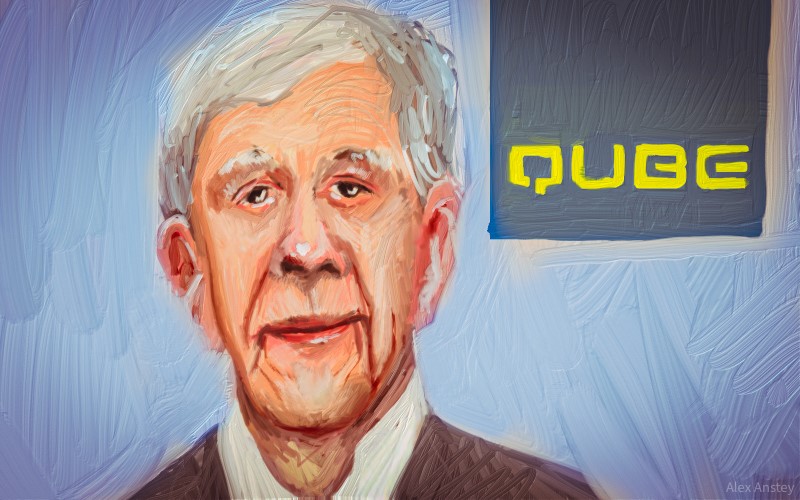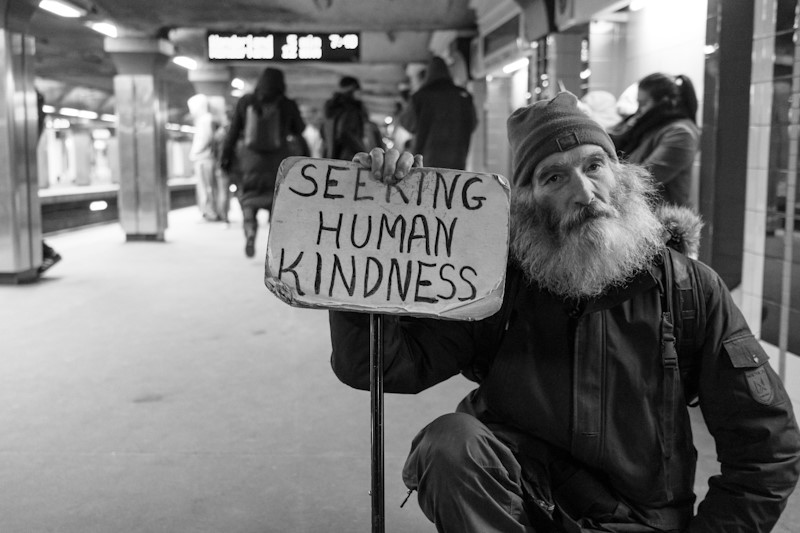
This post was originally published on Michael West.

This post was originally published on Michael West.
This post was originally published on The Asian Age | Home.
This post was originally published on The Asian Age | Home.

This post was originally published on Michael West.
Peshawar, Pakistan,
The Khyber-Pakhtunkhwa Government Has Dissolved The Advisory Committee On Digital Assets As The Decision On Digital Currency Can Only Be Taken By The Federal Government. The KP government launched Pakistan’s first advisory committee for cryptocurrency and crypto mining, marking a major step for the province’s plans on formulating a set of laws to regulate the use of cryptocurrency and crypto mining. An inaugural meeting of the committee was also held.
However, as per the provincial Science and Technology Department, the federal government has the prerogative over digital currency and therefore, the decision on digital currency and cryptocurrency will be taken by the center.
“As per provisions of the Fourth Schedule, Article 70 (4) clause (8) currency, coinage and legal tender on the Federal Legislative List Part 1 of the Constitution of Pakistan is the sole prerogative of the Federal government. The currency includes metal, paper, plastic, digital etc. Whereas, the Digitization including Information Technology is the mandate of the IT board is being carried out by the Khyber Pakhtunkhwa IT Board,” read the notification.
Therefore, the Advisory Committee formed on 9th February, 2021 is withdrawn and the sub committees formed as a consequence stand dissolved. It added that the matter of Digital Assets at allied matters will be submitted for consideration of the Provincial Cabinet as per the rules of business of the provincial government. The statement said that Science and Technology Advisor Ziaullah Bangash has also resigned. It should be noted that media personality Waqar Zaka and other provincial members were among the members of the Advisory Committee.
Read also,
This post was originally published on VOSA.
The oil giants that have helped drive the climate crisis are finally being forced to take responsibility for their actions
On a rainy afternoon in The Hague, the district court delivered a judgment against Royal Dutch Shell, the parent company of the Shell group. It refuted the excuses regularly relied on to continue extracting oil and gas and vindicated longstanding calls to keep fossil fuels in the ground. The court held that Shell’s current policy of merely reducing the “carbon intensity” of its products by 20% by 2030, and aiming to reach net zero by 2050, would contribute to climate impacts that endanger the human rights of the plaintiffs.
The extraordinary events preceding the oil industry’s so-called Black Wednesday bring to mind the proverbial path to bankruptcy: it happens gradually, and then all at once. Hot on the heels of a landmark report by the global energy body the International Energy Agency warning against new fossil fuel production, Wednesday’s historic ruling has blown another hole in the defences of an industry that has overwhelmingly failed to accept responsibility for driving the climate emergency.
Tessa Khan is an international human rights and climate crisis lawyer and campaigner, and the founder and director of Uplift
Continue reading…This post was originally published on Human rights | The Guardian.
This post was originally published on The Asian Age | Home.
Gilgil Baltistan, Pakistan,
The Pak-China Border on Gilgit-Baltistan has been reopened for all kinds of trade and tourism activities after a closure of almost one and a half years due to fears of Covid-19 pandemic, reported Pakistan local News Tv Channel.
The Pak-China border on Gilgit-Baltistan was closed for every kind of trade and tourism activity since 2019 in an effort to contain coronavirus spread. The border closure caused severe economic hardships for traders of not only GB but all over the country.
In a notification released by the federal ministry for foreign affairs on Monday, it was stated that the Chinese embassy had informed about the reopening of the border (from Chinses side) for every kind of trade and tourism goings-on.
The border area from the Pakistani side of Gilgit-Baltistan is also being reopened with stringent standard operating procedures in place, the notification said.
The trader community has hailed both governments decision regarding the reopening of the border.
This post was originally published on VOSA.
Muqeem Ahmad, London,
British retailer Marks & Spencer’s suffered an 88% drop in revenue last year, resulting in a loss of 201.21 million as of March 27.
According to data released by M&S, business activity remained positive at the beginning of the year and will improve in near future. Following this encouraging statement, Marks & Spencer’s shares rose to 6%.
According to the 137-year-old business, clothing and home appliances fell 31.5% last year, mainly due to the closure of all UK outlets during the lockdown. However, food sales remained 1.3% higher.
The heads of the companies have announced revolutionary changes in their business activities. These include the closure of non-profit stores, the use of information technology, the focus on e-commerce and the improvement of product quality.
In the next ten years, 30 stores will be closed and 80 stores will be relocated.
It should be noted that Marks & Spencer has so far relocated 59 stores to other locations and laid off thousands of employees.
This post was originally published on VOSA.
This post was originally published on The Asian Age | Home.

This post was originally published on Michael West.
Early last December, water futures were traded on Wall Street for the first time in history. Introduced by CME Group, the contracts are linked to the California water index and intended to measure water scarcity for major consumers (Chipman, 2020). The UN Special Rapporteur on the right to water condemned the creation of a water futures market, concerned that it would invite speculative trading (OHCHR, 2020). However, proponents of the water futures market contend that futures trading will safeguard water access as the American Southwest experiences increasingly dangerous droughts (Fickling, 2020). What both parties fail to acknowledge is that, regardless of its efficacy, the water futures market represents another frontier at which the state retreats from its obligations to the public and normalises the intercession of private interests into the distribution of an essential resource. Human rights practitioners are familiar with the concept of progressive realisation and the significance of norm-building. The water futures market embodies a progressive degradation of our recognition of water as a vital public good. Also, the financialisation of water resources cannot be extricated from its context: though a water protection bill has recently been introduced in Congress, the US has a demonstrable record of contempt for the equal allocation of water resources.
California’s water management systems support the country’s most populous state of 40 million residents, as well as millions of acres of irrigated farmland, and CME Group has directed their marketing materials primarily to California farmers (CME Group, 2021). The process of futures trading is meant to proceed thusly: during January, farmers will purchase futures contracts for their anticipated water shortfall, for example, 100 acre feet of water. If the spot price (the actual price of water rights) and the futures price are each at about $500, farmers will post margin, paying a percentage of the $50,000 total price to secure their position. If the spot price and futures price have risen when they later require that water, farmers will close their position and sell their futures contracts the day prior to purchasing water rights, having offset the increased spot price with the sale of their futures contracts.
Beyond the UN, multiple outlets have observed that the creation of a water futures market could lead to speculative trading (Tappe, 2020; Hodgson, 2020). If hedge funds and banks were to bet on water futures contracts, driving up the price, the futures price could influence the spot price and provoke an affordability crisis for the state of California, repeating in miniature the global food crisis of 2007 when, as a result of commodity trading, grain prices soared, exacerbating global hunger (Kaufman, 2011). Burgeoning water prices could threaten food production, reduce the performance of California’s environmental protection programs, and increase the costs of urban living, precipitating a cascade of potential human rights violations (Public Policy Institute of California, 2019).
However, analysts have discounted the possibility of trade-induced price inflation. Washington Post contributor David Fickling argues that water’s abundance and weight preclude it from becoming the next site of global commodities investment, therefore decreasing the likelihood of speculative activity (2020). Fundamentally, water is difficult to ship and, relative to other major commodities, easy to acquire. In a column for Global Water Intelligence, Christopher Gasson concurs and asserts that water is only valuable if it is used, thereby necessitating that investors commit to its distribution (2021). Camilla Hodgson joins them in the Financial Times, stressing the significance of the limits imposed by the water market’s modesty and inherent regionality (2020). In 2019, just over 200 transactions were made in the water rights spot market in California, a miniscule number in the context of global commodity trading (Hodgson, 2020). Further, water scarcity in the American Southwest is not necessarily a meaningful indication of global water scarcity. Ultimately, it is likely that the localised nature of the California water market will insulate it from injurious speculative activity. Furthermore, several analysts anticipate that CME’s projections will hold true, allowing futures trading to operate as a means by which to improve the distribution of water resources.
Despite these innate counterchecks, the increased financialisation of water is nonetheless worthy of scrutiny. The futures market is just one factor in California’s water management, which has for decades been marked by profiteering and privatisation. The state’s water rights spot market is labyrinthian, often capricious, and attracts exploitative private investment. Almarai, a Saudi Arabian agricultural conglomerate, owns 15,000 acres of California farmland and, with the protection of a 150-year-old claim, enjoys unrestricted access to the Colorado river (Markham, 2019). Harvard University’s endowment manager has also been accruing water rights in California, with the value of their investments almost tripling in five years (Gold, 2018). And several million state residents rely on privately held facilities for the distribution of their daily water (Water Education Foundation). These are among the entities most likely to benefit from the water futures market, while small-scale users are expected to be marginalised (OHCHR, 2020).
In July 2020, the previous Special Rapporteur on the right to water issued a report for the UN General Assembly which noted that “the financialisation of the water and sanitation sector creates a disconnect between the interests of the company owners and the goal of realising the human rights to water and sanitation” (UN General Assembly, 2020: 8). The same report also indicated that private sector involvement in water distribution tends to exacerbate inequality of water resources, as private entities only allocate services to areas that provide financial returns (UN General Assembly, 2020: 17). Researchers at UC Irvine confirm this analysis, finding that low-income and rural communities are disproportionately affected by water quality issues (Science Daily, 2018). Water futures trading is merely one aspect of increased financialisation, which is itself simply one element in the processes of privatisation. But, even if financial analysts are correct in their predictions that the water futures enterprise will have a positive impact on water distribution, futures trading will legitimate the ongoing advancement of governance by market logic and the detachment of water management from human rights priorities.
The Water Affordability, Transparency, Equity and Reliability Act was recently reintroduced in Congress; if it passes, it will fund the improvement of water infrastructure and includes language that prioritises disenfranchised populations (Congresswoman Brenda Lawrence, 2021). It remains to be seen if the legislation will be signed into law or if the subsequent application is effective in its mandate—there is ample historical precedent to suggest that state funds are often monopolised by subcontractors and consultancy firms to the detriment of the beneficiaries of the appropriated funding. While the WATER Act is promising and stands in contrast to the futures market and its intrinsic prioritisation of investment interests, it arrives after decades in which the US made evident it’s lack of commitment to the equitable distribution of water resources.
Beyond California’s perpetual droughts, the US is no stranger to water emergencies. The winter of 2021 alone saw disastrous mismanagement of water resources in Texas and Mississippi. In the past decade, there have been a number of contiguous water crises, often affecting Black, indigenous, and immigrant communities at disproportionate rates (National Resources Defense Council, 2019). Perhaps most notoriously, the Flint crisis exposed the country’s indifference to basic water needs of its citizens. Newark subsequently experienced an identical lead-poisoning crisis, while in Alabama the failures of wastewater management in another primarily Black community has provoked a public health disaster that the UN Special Rapporteur on extreme poverty indicated was unprecedented in a ‘developed’ country such as the US (Okeowo, 2020). A 2019 report by the US Water Alliance also found that indigenous Americans were the most likely of any demographic to be disenfranchised of water access (2019). In the Navajo Nation, tribal members are sometimes required to travel for miles to purchase water that is fit for consumption, as the groundwater has been tainted by abandoned uranium mines (Morales, 2019).
In a history filled with neglectful management of water, the introduction of a water futures market represents an implicit hierarchisation of profit motives above fundamental human rights. More research will be needed to understand how the water futures market actually affects the distribution of water, as well as its overuse, as its current structure offers little incentive for usage reduction (Hodgson, 2020). In the event that the futures market functions as envisioned by CME group, its positive impact would nonetheless entrench the encroachment of private interests into the distribution of a vital public good. Despite an increasing appreciation for the significance of global business to the realisation of human rights, states remain the ultimate guarantors of those rights, and the volatile, profit-driven logic of private investment is not an acceptable equivalent.
References
Chipman, K. (2020, December 6). California Water Futures Begin Trading Amid Fear of Scarcity. Retrieved January 31, 2021, from https://www.bloomberg.com/news/articles/2020-12-06/water-futures-to-start-trading-amid-growing-fears-of-scarcity
Fickling, D. (2020, December 09). Analysis | Why Water Won’t Make It as a Major Commodity. Retrieved January 31, 2021, from https://www.washingtonpost.com/business/energy/why-water-wont-make-it-as-a-major-commodity/2020/12/08/3a310556-39a9-11eb-aad9-8959227280c4_story.html
Gasson, C. (2021, January 7). Global water intelligence. Retrieved February 04, 2021, from https://www.globalwaterintel.com/news/2021/1/how-the-un-and-dr-evil-get-water-investment-wrong
Gold, R. (2018, December 10). Harvard quietly amasses California vineyards-and the water underneath. Retrieved February 04, 2021, from https://www.wsj.com/articles/harvard-quietly-amasses-california-vineyardsand-the-water-underneath-1544456396
Hodgson, C. (2020, October 15). Water futures meet cool reception. Retrieved February 04, 2021, from https://www.ft.com/content/016174d0-54ed-4806-9538-acbdf073df61
Kaufman, F. (2011, April 27). How Goldman Sachs created the food crisis. Retrieved February 04, 2021, from https://foreignpolicy.com/2011/04/27/how-goldman-sachs-created-the-food-crisis/
Markham, L. (2019, March 25). Who keeps Buying California’s Scarce Water? Saudi Arabia. Retrieved February 04, 2021, from https://www.theguardian.com/us-news/2019/mar/25/california-water-drought-scarce-saudi-arabia
Morales, L. (2019, November 18). Many native Americans can’t get clean Water, report finds. Retrieved February 04, 2021, from https://www.npr.org/2019/11/18/779821510/many-native-americans-cant-get-clean-water-report-finds?t=1612463743792
Okeowo, A. (2020, November 23). The heavy toll of the Black Belt’s Wastewater Crisis. Retrieved February 04, 2021, from https://www.newyorker.com/magazine/2020/11/30/the-heavy-toll-of-the-black-belts-wastewater-crisis
Tappe, A. (2020, December 07). Investors can now trade water futures. Retrieved February 04, 2021, from https://edition.cnn.com/2020/12/07/investing/water-futures-trading/index.html
CME Group. (2021, January 13). Nasdaq Veles California Water Index (NQH2O) Futures Product Overview [Video]. YouTube, from https://www.youtube.com/watch?v=Ta2inH0yxjs
National Resource Defense Council. (2019, September). Watered Down Justice—Report. Retrieved February 04, 2021, from https://www.nrdc.org/sites/default/files/watered-down-justice-report.pdf
OHCHR. (2020, December 11). Water: Futures market invites speculators, challenges basic human rights – UN expert. Retrieved January 31, 2021, from https://www.ohchr.org/EN/NewsEvents/Pages/DisplayNews.aspx?NewsID=26595&LangID=E
Public Policy Institute of California. (2019, May 17). Water use in California. Retrieved February 04, 2021, from https://www.ppic.org/publication/water-use-in-california/
Science Daily. (2018, February 12). ‘Hot spots’ of water quality violations. Retrieved February 04, 2021, from https://www.sciencedaily.com/releases/2018/02/180212170017.htm
UN General Assembly. (2020, July 21). Privatisation and the human rights to water and sanitation: Report. Retrieved February 04, 2021, from https://www.ohchr.org/EN/Issues/WaterAndSanitation/SRWater/Pages/PrivateSectorParticipation.aspx
Congresswoman Brenda Lawrence (2021, February 25). U.S. reps. Lawrence and Khanna and Sen. Sanders reintroduce the water act to address water justice in America. Retrieved March 06, 2021, from https://lawrence.house.gov/media-center/press-releases/us-reps-lawrence-and-khanna-and-sen-sanders-reintroduce-water-act
US Water Alliance. (2019). Closing the Water Access Gap in the United States. Retrieved February 04, 2021, from http://closethewatergap.org/wp-content/uploads/2020/03/Dig-Deep_Closing-the-Water-Access-Gap-in-the-United-States_EXECUTIVE-SUMMARY-1.pdf
Water Education Foundation. (n.d.). Local streams and reservoirs. Retrieved February 04, 2021, from https://www.watereducation.org/general-information/local-streams-and-reservoirs
This post was originally published on LSE Human Rights.
This post was originally published on The Asian Age | Home.
This post was originally published on The Asian Age | Home.
This post was originally published on The Asian Age | Home.
This post was originally published on The Asian Age | Home.
This post was originally published on The Asian Age | Home.

This post was originally published on Michael West.
This post was originally published on The Asian Age | Home.
This post was originally published on The Asian Age | Home.
This post was originally published on The Asian Age | Home.

This post was originally published on Michael West.

This post was originally published on Michael West.
This post was originally published on Human Rights at Home Blog.

This post was originally published on Michael West.
The graffiti says it all: “This is a bad place.” Why do states send children to facilities run by Sequel, after dozens of cases of abuse?
The vacant building that once housed the Riverside Academy in Wichita, Kansas, was covered in haunting graffiti: “Burn this place.” “Youth were abused here … systematically.” “This is a bad place.” The facility, run by the for-profit company Sequel Youth & Family Services, promised to help kids with behavioral problems. But state officials had cited the facility dozens of times for problems including excessive force by staff, poor supervision and neglect.
Riverside was just one residential treatment center run by Sequel. In a yearlong investigation, APM Reports found the company profited by taking in some of the most difficult-to-treat children and providing them with care from low-paid, low-skilled employees. The result has been dozens of cases of physical violence, sexual assault and improper restraints. Despite repeated scandals, many states and counties continue to send kids to Sequel for one central reason: They have little choice.
For much of its 20 year history, Sequel was able to avoid public scrutiny. But that changed recently in Oregon, when State Senator Sara Gesler began to investigate the conditions of kids the state placed under the company’s care. What she found led to Oregon demanding change and eventually severing ties with Sequel.
This is an update of an episode that originally aired on 11/21/20.
This post was originally published on Reveal.
This post was originally published on The Asian Age | Home.
Muqeem Ahmed, UK,
UK statistics reflects businesses are working hard to overcome the loss caused by the pandemic. The past month has seen the largest increase in manufacturing in the UK in 27 years.
Product orders in the BMI index rose in April compared to March, and two-thirds of businesses expect production to improve over a one-year period. However, according to the data, the supply of products is surging for a long time and the prices of raw materials are rising, which sometimes reflects an increase in economic activity.
Last year, the UK economy contracted by 10% and output fell to a 300-year low. According to experts, even if the UK rapid develops this year, the economy will be able to reach the level before Corona in 2022.
Rising shipping costs to product makers are hampered by a shortage of microchips and raw materials used in vehicles and electronics. UK industries are facing business difficulties and stiff competition from members of the EU bloc following UK withdrawal to the EU.
This post was originally published on VOSA.

This post was originally published on Michael West.

This post was originally published on Michael West.